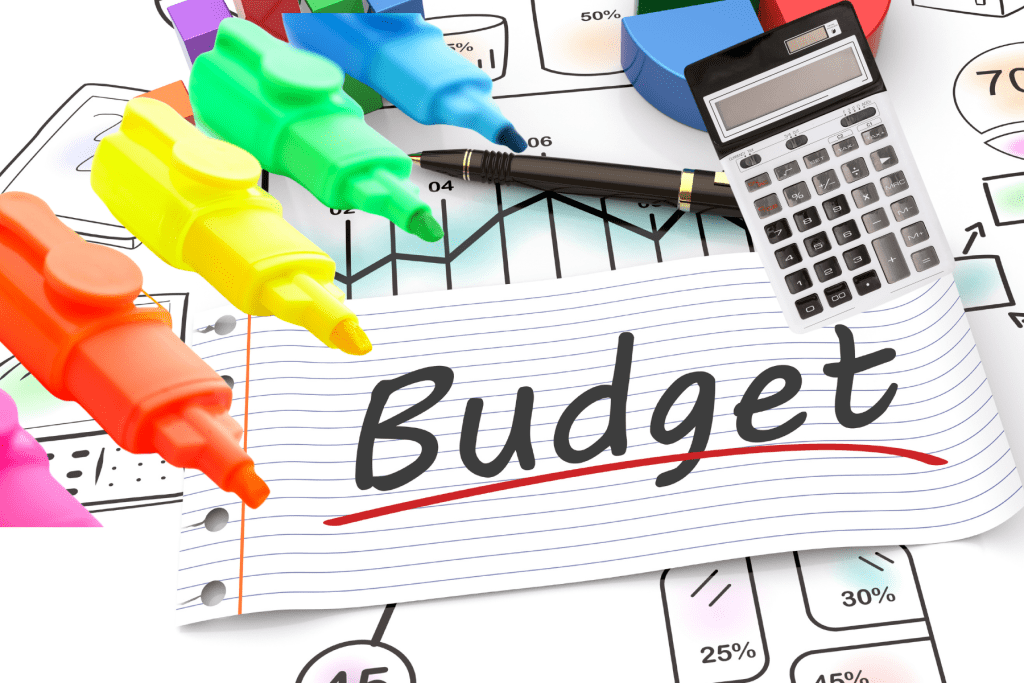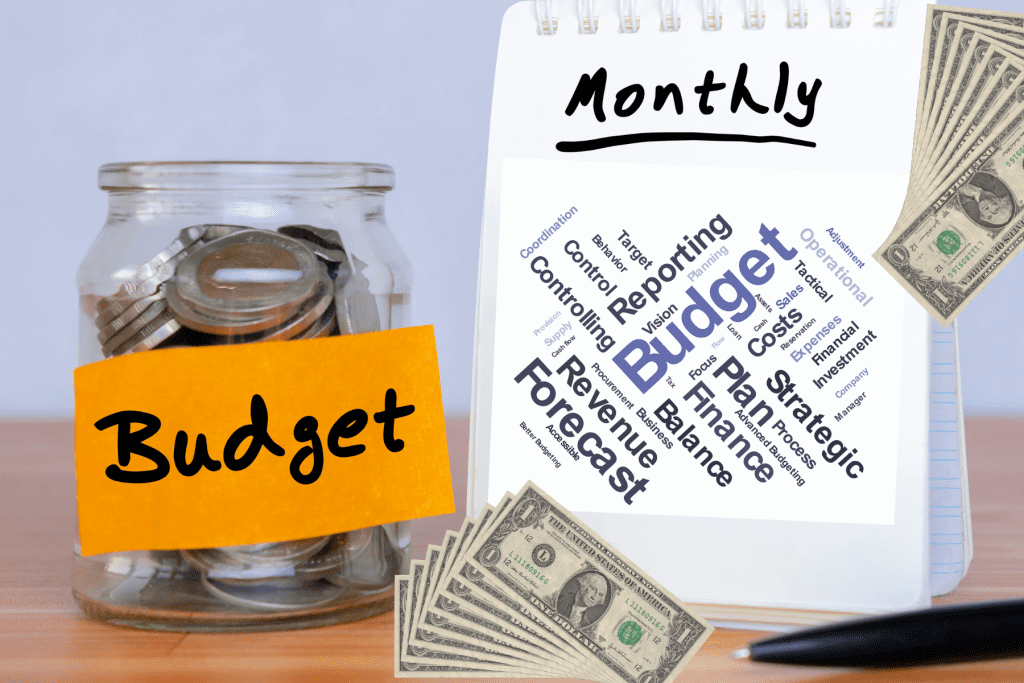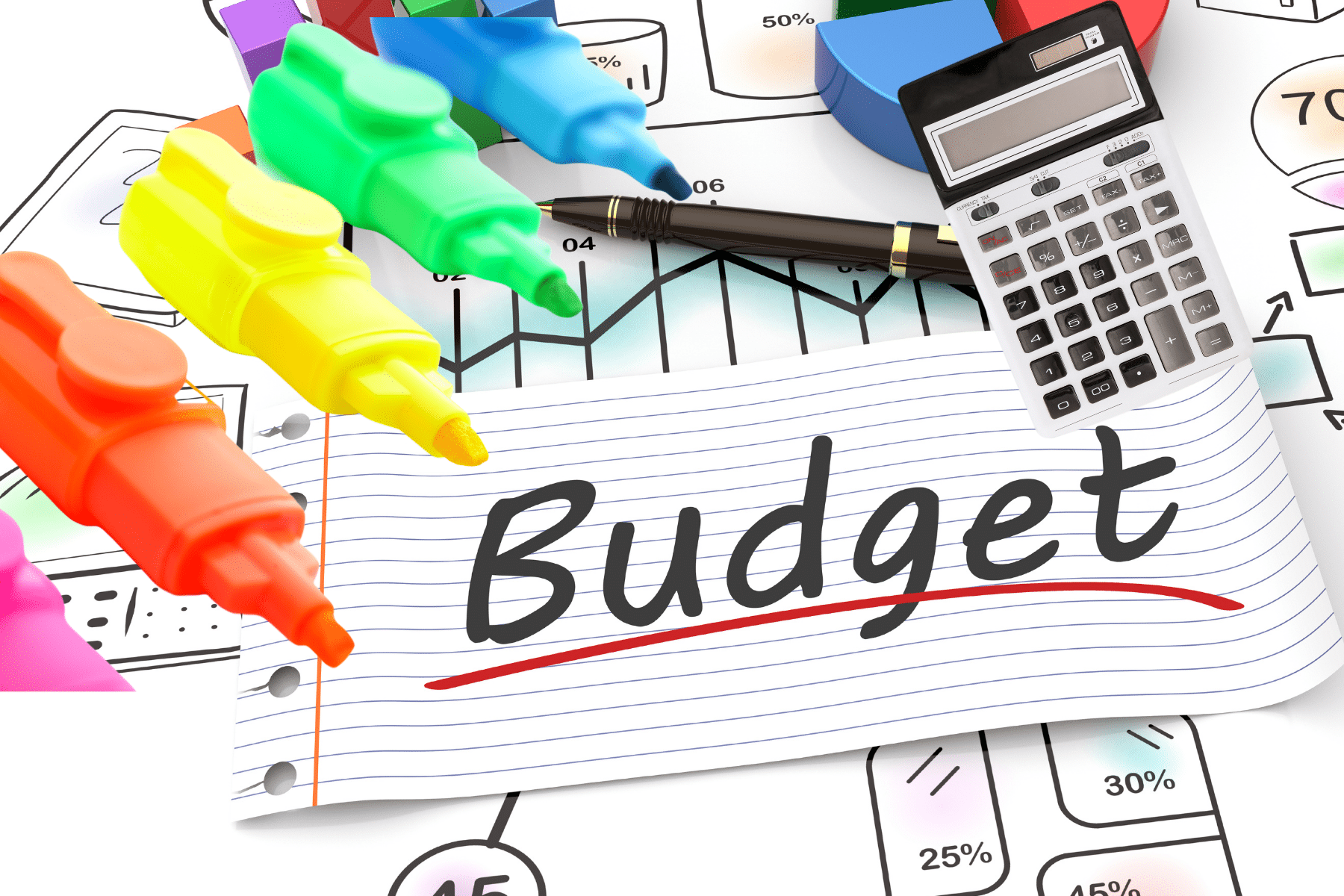Are you searching for help saving money? Then we’ve got you covered with painless ways to cut household expenses.
I may earn a small commission for affiliate links in this post at no extra cost to you. Please read my privacy policy and privacy page for more information. As an Amazon Associate, I earn from qualifying purchases.
Table of Contents
- Conduct a Financial Audit
- Patch Up Those Basic Budget Leaks
- Negotiate with Your Utility Company
- Monitor Your Food Budget
- Take Stock of Your Entertainment Costs
- Consider Switching to a Cheaper Energy Provider
- Take Advantage of Discounts and Loyalty Programs to Save Money
- Find Better Credit Card Options
- Evaluate your Insurance Companies and Insurance Premiums
- Creating a Budget
- Other Household Budget Ideas
- Next Steps on Household Expenses
The first thing that often comes to mind or is advice from others when we talk about painless ways to cut household expenses is to “stop drinking $6 coffeehouse coffees every day”.
Well, if you’re anything like me, you were never drinking those expensive coffees every day to begin with!
Let’s face some facts – although $6 isn’t necessarily a large sum of money and isn’t likely to break you financially.
However, with a few trips a week to your local coffee house – it adds up fast and you might realize you suddenly don’t have enough cash at the end of the month for your household budget.
Reducing spending habits and overall household expenses are simple ways to adjust to a new budget slowly- and an even better deal – it doesn’t have to be terribly uncomfortable.
So, let’s get into it!
We’re going to cover some easy and favorite ways to make some simple financial decisions and changes for long-term financial success at home and with less energy than you think.

RELATED POST: Want help learning How to Stock the Pantry on a Budget? Check out this related post on great tips.
Conduct a Financial Audit
The first step in saving money is to figure out what’s coming in through your take-home pay, what’s going out, and most importantly, where it’s all going.
One of the most effective ways to do this is to print your bank statements from your checking account for the past 3 to 6 months.

If you’ve already made some recent financial changes, 3 months of bank statements will do.
If you really want to dig in and figure out the big difference where your most money has been running off to, print the full 6 months of monthly expenditures.
While you’re putting in this hard work to uncover your monthly costs – grab a highlighter or two and go through your bank statements line by line.
You should not have a hard time if you find a system like using the color yellow for income coming in on a regular basis, pink for necessary expenses like health insurance or utility bills, and purple for unnecessary expenses that cost a lot of money and can be deleted from the budget (the fastest way).

Now keep on with the unnecessary expenses and figure out which ones will be the least painful to cut.
Make a list of which expenses we will cut first, second, third, and so on.
You can do this in phases so it’s not a huge change all at once.
If you have big leaks in your budget and are drowning in debt, you should take this process more seriously and cut expenses as much as possible right away.
Consider cutting some of the following items:
- Impulse buys
- Cable bill
- Monthly subscriptions
- Gym membership
- Internet service
- Streaming services
Patch Up Those Basic Budget Leaks
The good news is – you don’t have to quit all your favorite things cold turkey all at once.
A great way to begin is by cutting out all small expenses by making small changes to “patch the leaks.”
In other words, spend less money and not as much cash to stay in good shape with small unnecessary expenses.
For example, any money that’s unaccounted for month after month is a leak.

Perhaps this could be extra money that is spent at fast food restaurants or your favorite coffee drive-thru.
Either way, any money that goes to these types of places is unnecessary and would be considered a leak.
In addition, some leaks might not even be on your radar.
While you may not think about it at first, these leaks could be things like utilities, food, and fun and entertainment expenses.
Keep in mind, this doesn’t mean you have to cut out entertainment completely to meet your financial goals, and you don’t have to switch to the store brands or off-brands at the grocery store for all of your food.

You can still use some extra cash to enjoy a night out as an added bonus after a long week.
However, what this does mean is that you’ll need to stay aware of where every penny of your income (and bank account) is going.
A good way to think of this is that you will be accounted for and held responsible for your household spending and overall money management.
Negotiate with Your Utility Company
Cable tv, premium internet service, and cell phones, and their bills can take up a huge portion of your monthly expenses.
Although these utilities may be needed for kids’ homework, work meetings online, or to use a phone, you can easily cut the cable service and get Netflix or Hulu if the television and shows are a priority to you and your family.

To help get some lower rates, a good option is to call your cell phone company and negotiate a lower rate or a better offer.
Check out a budget vendor like mint mobile or another provider to really search around for a great deal.
A good place to start is by asking about military or veteran discounts, AARP discounts, first responders, AAA, or teachers or student discounts.

Some of these discounts are best matches to things you already do in life and can help lower your bill.
In addition, any discount they may have will be extended to you as the customer.
Monitor Your Food Budget
Even if you aren’t visiting the fast food drive-through on the daily, if you aren’t creating a shopping list and sticking with it, your grocery bills alone could potentially add up quickly.
The next time you are going shopping consider taking advance of meal planning ahead of time and also use the curbside pick-up services.

By ordering your food online and picking it up outside the store you’ll only purchase the things you need and also not be tempted to add more to your grocery cart.
Also, taking advantage of the curbside pick-up means all those items in the checkout line won’t be a temptation to you. Basically, those impulse purchases at the big box store will disappear and you’ll spend $60 instead of $160.
Take Stock of Your Entertainment Costs
Let’s get real for a minute.
How much are you really spending on entertainment each month?
Financial advisors will recommend coming up with a family plan to reduce entertainment costs in the long run.
You could also check out money talks news solutions center for more great ideas.

Whether it’s a gaming subscription or the newest smartphone game or going to the bars or bowling, you need to think what’s my budget?
If you haven’t created a budget yet, now is the time to work on creating one.
As we covered earlier, entertainment is important for well-being and overall health.
So, we don’t need to completely cut it out, however, being aware of how much is being spent and making sure it relates to how much it enhances our life is a crucial step to cutting household expenses.
Consider Switching to a Cheaper Energy Provider
One of the painless ways to cut household expenses is to consider switching to a cheaper energy provider who can offer you a lower price on your monthly payments of the heating bill water heater bill as well as other utility bills.
The energy market has become increasingly competitive over the years, meaning households now have more options and can now comparison shop.

Conducting an energy price comparison to find the best deal on gas and electricity is an effective way to reduce expenses and get better rates all without any major lifestyle changes.
If a cheaper energy provider is found, it should be noted that there may be a cost to switch, and the contract may also have an exit fee.
It is important to read the fine print and understand the terms and conditions of the new deal before committing to it.

Perhaps consider seeking outside help and advice before deciding to make any switch.
Utilize Automotive Home Items like a Programmable Thermostat
One of the most painless ways to cut household expenses is to utilize automated home items for optimal energy-saving ideas.
While often more expensive upfront, these items can save money in the long run.
A great example of this is a digital programmable thermostat.
By programming the thermostat to a specific temperature, you can keep your air conditioner or heater from kicking on more than necessary and using unnecessary energy.
Additionally, other easy ways to utilize its technology is set and use timers and save even more money by adjusting the thermostat to change the temperature slightly when you’re away from home and by monitoring the temperature to ensure it is not too low or too high.
Take Advantage of Discounts and Loyalty Programs to Save Money
Taking advantage of discounts and loyalty programs and using coupon codes are all excellent ways to save money on household expenses.
Some stores offer a great option to access discounts for loyal customers, so be sure to look for these when shopping.
Additionally, there are a variety of loyalty programs available, such as frequent shopper cards or cash-back credit cards that can also be used with things like senior discounts.
These can help you save to keep your savings account and money looking good when shopping.

In addition, these stores often offer rewards or points, or even a gift card that can be redeemed for additional savings.
Be sure to shop around to find the best loyalty program for your needs and watch the savings add up.
Find Better Credit Card Options
Another easy and painless way to cut household expenses (and help with credit card debt) is to find better credit card issuers depending on your credit score and monthly credit card balance.
With so many credit cards and credit union representatives on the market, it pays to take some time to compare for lower interest rates, rewards, and other features of available cards.

If you are already carrying a balance from month to month, look for a card with a lower interest rate.
In addition, look for cards that offer rewards such as cashback or airline miles.
Make sure you read the fine print and check for annual fees, late payment fees, and other hidden costs.
By finding the right card, you could potentially save hundreds of dollars in interest and fees each year.
Evaluate your Insurance Companies and Insurance Premiums
Evaluating your insurance coverage and insurance deductibles is a great way to reduce your household expenses.
Take time to review your coverage for health insurance, car insurance, and life insurance, and make sure you have the right policies for your needs.

Consider shopping around for different policies or raising your deductible to a higher deductible to lower your premiums.
If you’re unsure about what coverage is right for you, speak to an insurance agent to get a better understanding of your options.
Creating a Budget
Now that you’ve found some painless ways to cut household expenses, let’s keep adding to it.
So, you’ve finished your household financial audit and patched the leaks, it’s now time to set a budget for entertainment (while still preserving an emergency fund).
We’re not saying to run out and buy a new car, but being on a budget doesn’t mean you have to lock yourself in the house all day.
Just make sure you are making smarter choices with the money you’ve set aside for certain activities.

Instead of spending $50 going to the movies, find a theater that is showing old movies for $2 per person.
Or, watch the movies at home with popcorn that costs so much less than movie theater popcorn.
Other Household Budget Ideas
Making small changes like the ones we’ve outlined here makes budgeting less painful.
Here’s a fun idea – you can even turn household budgeting into a family game.
Have everyone in the family figure out the cheapest way to have a family fun night.

Alternate family nights at home, with board games and popcorn, and going out.
Finding cheap bowling days and times, cheap movie days and times, a time at the local ice rink that’s a family day, etc. will ensure your family never gets bored but also doesn’t go over the household budget.
Next Steps on Household Expenses
Cutting household expenses doesn’t have to be painful.
It can actually be an enjoyable process that gives you more control over your household finances and increases your financial freedom.
Start by tracking your spending and finding ways to reduce it.
Then, look for ways to increase your income, such as taking on a side hustle or finding a better-paying job.

Finally, don’t forget to make sure you are getting the best deals for the products and services that you need.
With these painless ways to cut household expenses, you can save money and improve your household financial situation.
After you’ve worked on cutting household expenses in a painless way, you may need to go back through and be even more ruthless with expenses.
Or, you may want to work on creating more income with side hustles.

You can drive for companies like UberEats, or you can create your own streams of income online like hundreds of thousands of others do every day.
No matter what your financial situation is, it can improve with planning and painless household budgeting.
One last thing to check, if you didn’t with your audit, is your recurring subscriptions via Paypal. Also check your Cash App, Zelle, or other payment methods you use.

The idea is to track every single dollar that comes in and goes out.
Once you start doing this one simple thing, the rest falls into place quite easily.

For more great DIY and everything home ideas, be sure to follow us on Pinterest, Instagram, Facebook, and Twitter for the latest posts, tips, and ideas.
Final thoughts
We hope you’ve found some of these to be painless ways to cut household expenses and helpful to your home and family.
Note: I am not an attorney, financial advisor, or accountant. Information in this post and on basichomediy.com is not a substitute for financial advice from a professional.
These tips are just some of my opinions and tips. We highly recommend checking with your own financial professionals before making any financial decisions for you or your family.
Your turn
Which of these painless ways to cut household expenses was your favorite?
Do you have any tips you can share for cutting household expenses? Let me know in the comments.


This post has been very helpful; thanks for sharing! I have recently cut out my expenses on entertainment and monthly subscriptions. It turned out that I didn’t need them as I thought.
All of these are great ideas for cutting my household expenses. I am feeling energized to put some of this ideas in place.
My recent expense audit revealed we are beginning to spend a lot more on eating outside which means my weekly meal plans are not liked by everyone in the family 🙂 thanks for these reminders of where to look for hidden expenses!
What a great article! These are great tips that are so easy to do!
This is such a great and very detailed post…thank you! There really are so many painless ways that we can cut household expenses as you have suggested….and it starts with an audit! I have several habits (like the $6 coffee you mentioned) that I know I could cut cost on….the other one for me is Amazon! I get on there for one thing and end up with 5….needlessly! Thanks so much for this great post! Pinning for later!
Food expenses are really high at the moment! We meal plan and only buy what’s on our list, but even then! Do you have any healthy meals on-budget ideas? I feel that’s where we struggle, trying to balance our healthy eating habits with the high prices of groceries (at least that’s the state of things here in Canada).
Great suggestions! As I’ve gotten older, I’ve found that things I spent lots of money on were not really making me happy. In fact, not having that wasted/spent money later actually decreased my long-term happiness! It’s so important to think through every purchase before buying!
These are super helpful ways to budget which is so important in a cost of living crisis. It’s key to look at other options, access what’s working for you and what you really need.
I have actually given up shopping on Amazon for Lent, which has really cut down on some of the impulse buys, not to mention saved waste from shipping.
This post couldn’t have done a better job at identifying the most efficient ways to save money. Food and utility bills are my two biggest expenses I pay the most for any given month; so understanding how I can save on those is a lifesaver in itself! Thanks so much for sharing!
Usually, in winter and summer, our bills get expensive so we do our best to cut and save money on electricity. Also, it’s good to unsubscribe to an unused subscription like movie channels.
Great tips here. Our household expenses became high lately so I want to try other strategies.
These are great tips. I am always looking for way to cut back and stay on top of my budget. Great post!
What a really great and very helpful tips you have here! Thanks for sharing this with us!
These are all great ideas! My family cuts expenses by packing lunches when we go away and couponing for groceries as often as possible. I never thought about calling the cell phone company for a better rate!
Oohhhh…I am working on making my budget tighter. I have had to cut (painfully) out some items I always like. All will be well, I hope!
I have been making a list of our income and expenditure and I love the idea of color-coding them. That would definitely make it easier to track if we have so many unnecessary expenses. After reading your post, I just realize we have so many entertainment expenses and will start by unsubscribing to our Spotify service. Thank you for sharing these tips.
Thanks for sharing these basic cost cutting ideas. I need to be better about keeping a budget. I like your idea about the curbside pickup. I never thought of that as a cost-cutting measure before. I’ll have to try it.
These are all such great ideas on cutting household expenses. Thanks so much for sharing the list!
really great information and very helpful tips you have here and so relevant for a lot of us in this season of life.
I believe with the high costs of everything today, cutting household expenses is a must for many. Great ideas and ways for slashing your monthly bills.
These are fabulous tips about painless ways to cut household expenses. My husband is an excellent negotiator, and it comes to mind that he is never afraid to switch companies if our price goes up. Thanks for the reminders and your wisdom! (P.S. have you ever watched the TV shows about extremely frugal people? Must some of them are jaw-dropping! LOL)
These are super helpful ways to budget which is so important in a cost of living crisis. It’s key to look at other options, access what’s working for you and what you really need.
I can always use more ideas to save money. Thank you for the helpful information. There are things I know I should do, but just need to be motivated to do them. Thanks for the encouragement!
Thanks so much for these helpful tips to cut household expenses for a budgeted home. Subscriptions and streaming services sound like very good options to me.